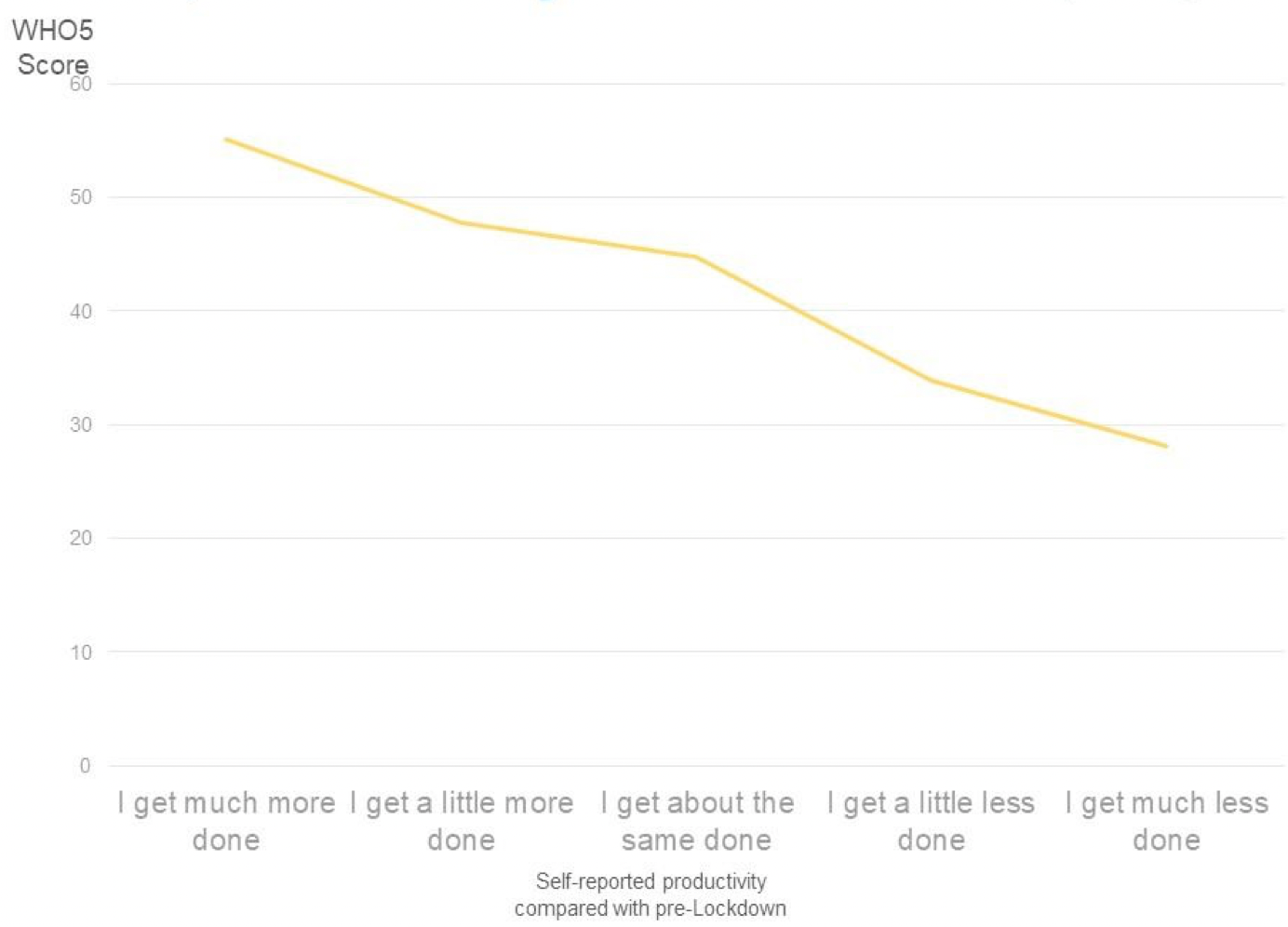New research explains why some people are less productive working from home
By Stephen Bevan—The Conversation
May 17, 2021
Many companies do not routinely measure productivity. A large number will have traditionally assumed that they get the highest output when staff work longer hours or under close supervision. But remote working is clearly causing some to reevaluate this. Major firms, for instance professional services group PwC, have been sufficiently impressed to make remote working a permanent option for their staff.
On the other hand, some business leaders insist that remote working is compromising productivity and is therefore not workable in the long term. Goldman Sachs CEO David Solomon has dismissed it as an “aberration that we’re going to correct as soon as possible.” So who is right?
Surveys tend not to be good at measuring productivity objectively. The research partnership Work After Lockdown, on which I’m a coinvestigator, has been trying to improve on this. We have just published the results of a survey funded by the Economic and Social Research Council in which we asked 1,085 respondents working from home in the U.K. about their productivity.
We chose to use a standard measure of labor productivity used by economists, output per hour worked, where output refers to the value of the goods or services in question. Using this meant we weren’t just measuring whether people were working longer hours.
We asked our respondents whether they felt that their self-reported productivity was the same, better, or worse compared with the pre-lockdown period. From the results, 54% thought they got “a little more” or “much more” done per hour worked than before the lockdown.
Combined with those who reported that their productivity was the same as before lockdown, it meant that almost 90% reported that productivity had been maintained or improved—echoing the results of other U.K. studies. In other words, barely one in ten people reported that their productivity had gone down during lockdown. So why would working from home have made most people more productive, but some less so?
Productivity and mental health
We also questioned our respondents about their mental health, and scored them using the World Health Organization’s WHO-5 index. From plotting the results on the graph below you can see a very clear pattern, with higher productivity associated with better mental health. In fact, the mental health scores for the most productive workers in our survey were twice as high as the least productive.
Productivity and mental health of remote workers

It is not clear from our data whether poor mental health causes or contributes to a decline in productivity or whether being productive helps to boost mental health. It seems reasonable to think that both are probably true.
To explore this relationship, we looked at people’s ability to adapt to changing circumstances and their capacity to overcome setbacks or interruptions–referred to in the literature as self-regulation. We might expect people with such abilities to remain focused on a task and be more productive as a result. Sure enough, this was supported by the data.
More than 90% of our respondents reported that they could concentrate on one activity for a long time; 94% said they were able to use the autonomy afforded them by their employer to reorder work tasks; 85% said they could control their thoughts from distracting them from the task in hand; and 83% said that they had no problem resuming a concentrated style of working after an interruption. Each of these dimensions of self-regulation were strongly positively correlated with high productivity per hour worked.
It’s worth remembering, of course, that many people working from home during lockdown have been living with mental-health challenges such as isolation, money worries, homeschooling, or other health problems. Clearly, if organizations want to ensure that employees are productive working from home, the value of investing in measures to support psychological well-being is very clear.
Working in the future
The social disconnection of working at home over an extended period may well erode people’s mental well-being and productivity in the future—perhaps especially among workers who thrive on interacting with colleagues and clients to swap and shape ideas. The outgoing chief economist of the Bank of England, Andy Haldane, has expressed concerns about this, and 73% of our survey respondents reported that they ideally wanted working patterns that allowed them to vary their place of work to reflect the tasks they were performing.
With this in mind, it has become very fashionable for companies to talk about “hybrid” working lately. But it’s an imprecise concept, and if businesses are to give employees clarity around what can be done at home and what needs to happen at a traditional workplace, they will need to decide which jobs truly need to be done at a particular time or location.
Getting this wrong may risk compromising the mental health of employees, for example, if prolonged remote working increases isolation or increases work intensity. It may also mean that companies never quite manage to deliver the long-term productivity gains they are hoping to secure once lockdown is over.
Stephen Bevan is the head of HR Research Development at the Institute for Employment Studies, Lancaster University.
This article is republished from The Conversation under a Creative Commons license. Read the original article.
(47)



